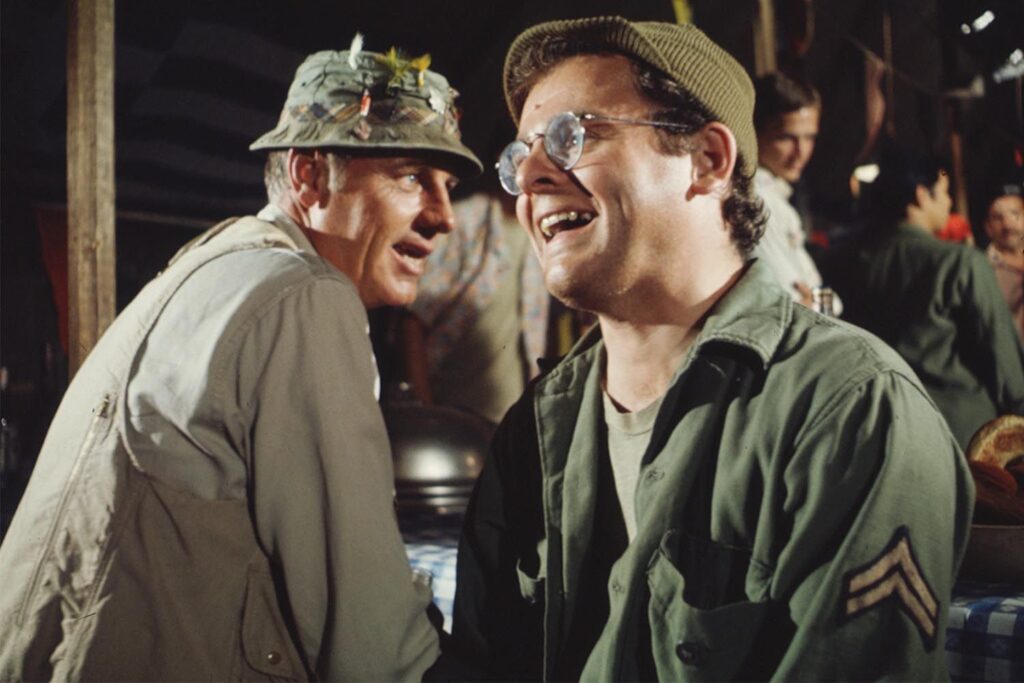NEED TO KNOW
Fifty years after one of TV’s most shocking death, a member of the cast shares their thoughts.
In a recent interview with PEOPLE, M*A*S*H star Jamie Farr opened up about the heartwrenching season 3 finale of the series, titled “Abyssinia, Henry.” The episode takes the comedy down a more serious path after the crew loses one of their own, Colonel Henry Blake, portrayed by McLean Stevenson.
“We did not get the ending of that. We did not know that Colonel Blake was gonna die,” Farr recalls.
“We thought that, I think it was in that Carmen Miranda outfit or something, and we waved goodbye to him at the helicopter when he was taking off to go stateside. We finished that and we all went home afterwards. And then we got a call, all of us did. They said there’s an added scene and that they needed us in the OR.”
Never miss a story — sign up for PEOPLE’s free daily newsletter to stay up-to-date on the best of what PEOPLE has to offer, from celebrity news to compelling human interest stories.
CBS via Getty
“And we went, ‘What? The what? What do you mean added scene? We said goodbye.’ And what happened was that they took us aside, they didn’t tell the extras or even the camera crew that they had that extra page where the airplane was shot down and there were no survivors.”
Though the death was a fictional one, the implications for the actors and the show felt very real and brought the weight of the wartime comedy back down with the realities of battle. Farr remembers cast members being “very upset about it.”
CBS via Getty
“I know Gary Burghoff, Radar, who had to deliver that line was upset. At that point, I certainly was not that important to [ask] my choices of it. But what they wanted to show was that people that you love die in war. They thought it would enforce the thing that M*A*S*H was about, the Mobile Army Surgical Hospital saving lives. And they thought that was a good way of doing it because Mac, his character, Colonel Blake, was such a lovable character.”
Farr says the cast remained “stunned” for a while, “because we had never lost any of our characters.”
“Trapper John went home, but he was still alive. But to have somebody that’s a main character like that actually get killed was something that was shattering to everybody.”
He noted that it was at that point that M*A*S*H became known as a “dramedy.”
Bettmann/Getty
“You had certain things that were very, very important in the show that had to do with medical things and life and death. And then you had all kinds of comedy. We had high comedy, we had burlesque comedy in it. We had all kinds of stuff depending upon the characters and what we were doing at the time,” he shared.
“It was really a magnificently written show. It was a … how can I say it? It’s like a big musical, in that you have moments in it where they’re serious and then you have silly moments. It had all kinds of qualities to it.”

